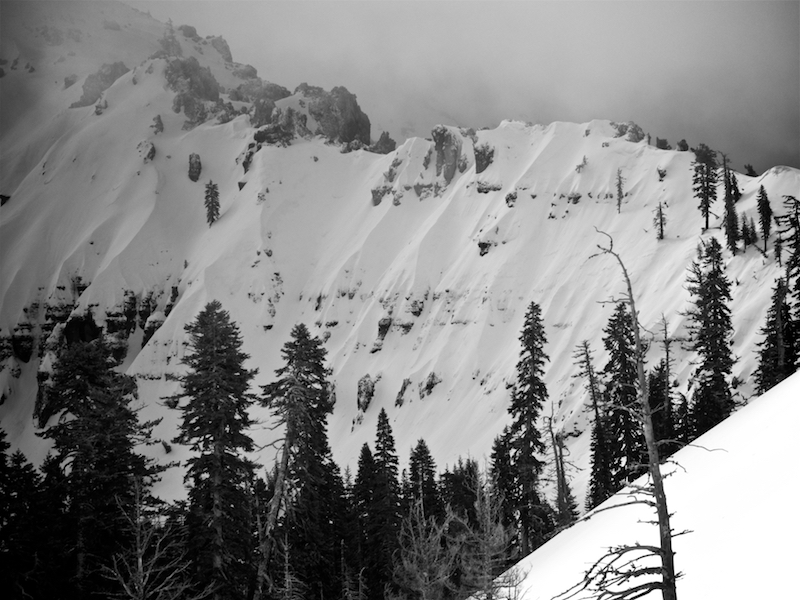
Sugar Bowl ski resort on Donner Summit, CA, has had a heavily storied 75-year history. They installed the first chairlift in California and the first gondola on the West Coast. Charlie Chaplin filmed scenes for his movie “Gold Rush” there in 1924. Walt Disney was an original investor in the ski resort, and the 700 acres that Sugar Bowl first sat upon was purchased from the Southern Pacific Railroad for $10 per acre in 1923. 75 years after opening, Sugar Bowl is a skiing and snowboarding hotspot and has the rowdiest inbounds terrain in California: The Palisades.

Austrian Style Village and Cash Money:
Ever wondered why the Sugar Bowl village feels like an Austrian village right out of Tyrol? It’s because Austrian ski champion Hannes Schroll is the gent who founded Sugar Bowl, and he dreamed it up that way back in 1938. Schroll visited Sugar Bowl, saw the enormous snowpack, and bought Sugar Bowl for $6,750. Schroll used his contacts from racing in Austria and ski instructing in Yosemite, CA, to raise $75,000 in 1939 to create the necessary infrastructure for a legit ski resort. Walt Disney, a ski client of Schroll’s, threw in $2,500 as an original investor.

Opening Day, 1939
The creation of the original Sugar Bowl happened quickly. In the summer of 1939, a 1,000-vertical-foot chairlift (California’s first chairlift) was built to the top of Mt. Disney along with the Sugar Bowl Lodge, and they opened the ski resort for the first time on December 15th, 1939. Trainloads of skiers immediately began pouring into the resort from the San Francisco Bay Area. The number of skiers was much greater than expected, and a regular winter passenger train service called the “Snowball Special” was set up from the Oakland pier in 1940.

The Silver Belt Races
In the first year of operations at Sugar Bowl, the inaugural Silver Belt race was held. Before the World Cup Ski Racing Tour was created, the Silver Belt race was considered one of the most challenging and regularly attracted the top European and American skier racers. The Silver Belt races were held from 1940 until 1975. In 2004, the Silver Belt race was reinstated as the Silver Belt Banzai and still is raced today.

Marilyn Monroe, Walt Disney, Goofy, and Hollywood:
Hollywood loved Sugar Bowl in the 1940s. Actors, producers, and directors such as Marilyn Monroe, Walt Disney, and many more frequented Sugar Bowl. Disney even made a Goofy cartoon called “The Art of Skiing” where Goofy skis at Sugar Bowl and the opening yodel that Goofy bellows is actually Sugar Bowl founder Hannes Schroll’s recorded yodel.

World War II
The good times at Sugar Bowl started fast and stopped faster. World War II began in 1942, Schroll retired as president of the ski resort, the Southern Pacific Railroad stopped the “Snowball Special” service, and the small nearby town of Norden became a storage facility. Things got going again in 1946, and skiers were more eager to ski than ever after the war.

Lift Expansion
In 1950, the second chairlift was built to the top of Mt. Lincoln. In 1953, the first gondola on the West Coast was installed to move people more efficiently from the highway parking lot to the ski resort base. Many more lifts were added over time, leading up to the 2012 addition of the Crow’s Peak Express.

Winter Olympics in California, Warren Miller, Interstate 80
In 1960, the Winter Olympics were held in nearby Squaw Valley due to Alex Cushing’s cunning and determination. Cushing met Wayne Poulsen, the original owner of Squaw Valley, at Sugar Bowl 1946. Poulsen invited Cushing to open a ski resort in Squaw Valley with him. Within 6 years of being opened, the Winter Olympics came to Squaw. Walt Disney, an original investor in Sugar Bowl, paid for and designed the opening and closing ceremonies for California’s 1960’s Winter Olympics.
In 1963, Warren Miller filmed at Sugar Bowl for his “The Color of Skiing” movie.
In 1964, Interstate 80 was completed over Donner Summit, making access to Sugar Bowl by automobile extremely easy from the San Francisco Bay Area and helped ignite Sugar Bowl’s popularity.

Modern Day Sugar Bowl
Sugar Bowl now has 13 lifts (5 high-speed quads, 3 quads, 1 triple chair, 2 double chairs, 1 gondola, 1 surface lift), 1,650 skiable acres, 1,500-vertical-feet, and a 500-inch average annual snowfall (the snow most in Tahoe). They recently added the Crow’s Peak Express, which allows for over 1,000-vertical-feet of great freeride terrain.

Sugar Bowl has open boundaries with access to the best, most dynamic backcountry skiing in the Lake Tahoe region.
Sugar Bowl is a world-class ski resort by any standard, and its 75-year history is literally steeped in history.
I started skiing at age 7, in 1948, at Sugar Bowl. I will be 84 in three weeks. The last time I skied at Sugar Bowl was in 1993 when we had an El Camino High School (Sacramento, CA) ski team reunion. Our team had several races at Sugar Bowl under the direction of Augie Maison. Skiing at Sugar Bowl was a big part of my younger life. I was so happy when the gondola from the highway to the lodge went in………I didn’t like climbing thru or over the train sheds and then cross country skiing to the resort :). But the skiing was worth it. I have years of wonderful memories of Sugar Bowl. Also, my daughter was an instructor there in 1998. The last time I skied was 2011. My dream is to ski one more time – preferable at Sugar Bowl. Thanks for the memories 🙂
who cares? it’s great terrain.
Crows Nest lift is not an express lift…
Under the heading Opening Day 1939- the early day skier is a famous local skier named Dr. Peter Picard. He was an orthodontist in the San Francisco Bay Area. He was a friend of Hannes Scholl. Beloved Dr. Picard.